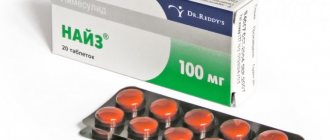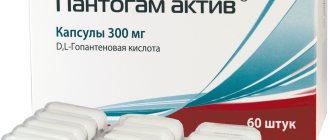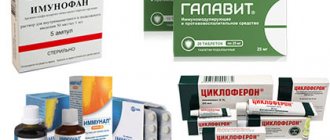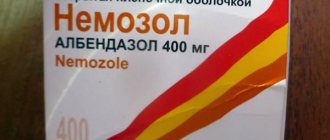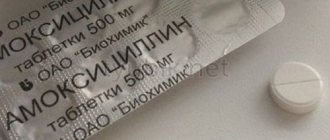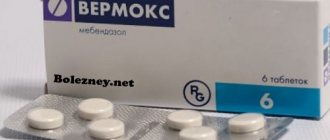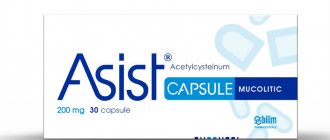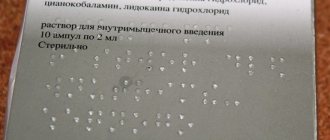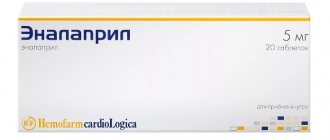The drug Nimesulide is a drug belonging to the group of non-steroidal anti-inflammatory drugs (NSAIDs), which has analgesic, antipyretic and anti-inflammatory effects. The drug is effective in the treatment of joint diseases that are accompanied by severe pain. The drug is widely used in medical practice to relieve pain after surgery. In addition, the substance nimesulide is used for inflammation of various types as one of the components of complex therapy.
Release form and composition
Currently, manufacturers offer the following forms of drug release:
- pills;
- suspension;
- gel for external use;
- granules for preparing the solution.
Regardless of the form of release, the medicine contains the active ingredient nimesulide in varying dosages.
The tablets contain auxiliary components: calcium hydrogen phosphate, sodium lauryl sulfate, croscarmellose sodium, lactose monohydrate, magnesium stearate, microcrystalline cellulose, aerosil, talc, hydroxypropylcellulose. The drug is produced by the companies Atoll, Maxpharma, Israeli Teva, and Macedonian Replekpharm. The radar says that the Latin name of the drug is Nimesulidum.
Phoenix Health
Nimesulide is a non-steroidal anti-inflammatory drug with selective action (it blocks the inflammatory reaction directly at the site of the disease, due to which it has a gentle effect on the mucous membrane of the stomach and kidneys). In addition to a pronounced anti-inflammatory effect, it also has an analgesic and antipyretic effect (to a lesser extent). Nimesulide is most often used to relieve pain symptoms in diseases of the musculoskeletal system.
The mechanism of anti-inflammatory action is associated with blockade of the synthesis of inflammatory factors (prostaglandins) at different stages, inhibition of the release of histamine and cytokines, as well as suppression of such damaging reactions as the formation of free oxygen radicals and the enzyme myeloperoxidase, which have a toxic effect on surrounding tissues. Nimesulide also interacts with glucocorticosteroid receptors, which enhances its anti-inflammatory and analgesic effect.
In addition, the drug to some extent inhibits the synthesis of enzymes responsible for the breakdown of connective tissue components, thereby preventing the destruction of cartilage tissue.
Nimesulide is available for oral administration (tablets, suspensions, granules) and for external use (gel).
When taken orally, the drug quickly causes the above effects. The primary analgesic effect is observed within 20-30 minutes after taking the drug. The maximum concentration in the blood plasma, and, consequently, the effect is observed after 1.5-2.5 hours. Taking Nimesulide with food may somewhat slow down the onset of the anti-inflammatory effect, but in general does not affect the metabolism of the drug in the body. Therefore, to relieve paroxysmal pain, it is preferable to take the drug before meals. The exception is for persons suffering from diseases of the gastrointestinal tract: in this case, Nimesulide is recommended to be taken at the end or after meals.
The drug in high doses accumulates in the joint fluid and inflammation, penetrates well into the tissues of the female genital organs and through histohematic barriers.
Nimesulide is metabolized by the liver. It is excreted mainly in urine and partially in bile.
When used externally, the drug practically does not enter the systemic circulation. It is absorbed locally rather slowly, but creates high concentrations at the site of inflammation for a long time.
The content of the article:
Indications for use
Nimesulide is prescribed orally:
- to reduce and eliminate pain, primarily in various diseases of the osteoarticular system and muscles (rheumatoid arthritis; osteoarthritis; arthritis of various etiologies; arthralgia; bursitis; myalgia);
- for the relief of pain and inflammation in dental and gynecological practice (algodismenorrhea);
- to relieve pain and inflammation after surgery;
- as an antipyretic for fever associated with inflammatory processes in the upper respiratory tract and ENT organs.
Externally (in the form of a gel) Nimesulide is used to eliminate local pain in joints and soft tissues in various pathologies of the musculoskeletal system, sprains and injuries of muscles and ligaments.
Directions for use and dosage
For oral administration, Nimesulide is available in the form of tablets, sachets with granules and suspensions in dosages of 50 and 100 mg. The specific dose and treatment regimen are prescribed by the doctor depending on the patient’s condition and disease.
In general, it is recommended to take Nimesulide after meals with plenty of water.
It is recommended to limit the duration of use at home to 5 days. Any further adjustments to treatment must be agreed with your doctor.
Despite the fact that there is debate about the possibility of using Nimesulide in children under 12 years of age, the drug is currently prescribed to this category of children only in emergency cases after consultation with a doctor. In normal situations, children under 12 years of age should not use this drug.
In the case of using a gel for external use, the duration of Nimesulide therapy is assessed individually depending on the effectiveness of treatment.
Side effects
If the recommended treatment regimen is followed, in normal cases no side effects are observed when taking Nimesulide orally. However, in rare cases, reactions are possible:
- from the digestive system: nausea, heartburn, stomach pain, constipation, diarrhea; in some cases - tarry stools, melena (the latter are most often associated with exacerbation of existing diseases of the gastrointestinal tract);
- from the central nervous system: dizziness, drowsiness, weakness;
- allergic reactions: erythema, skin rashes, urticaria, anaphylactic shock;
- changes in other organs and systems: rarely - oliguria, fluid retention in the body, the appearance of local or systemic edema; very rarely - thrombocytopenic purpura, acute renal and liver failure.
When using Nimesulide gel, local skin reactions in the form of redness, itching and peeling of the skin are possible.
Any side effects that occur while taking the drug are grounds for stopping its use and consulting a doctor!
Contraindications
Absolute contraindications for taking Nimesulide include:
- age up to 12 years;
- pregnancy (the third trimester is the most dangerous);
- diseases of the gastrointestinal tract (gastric and duodenal ulcers in the acute phase, acute bleeding from the gastrointestinal tract, moderate and severe liver failure);
- renal failure (with creatinine clearance less than 30 ml per minute);
- "aspirin" bronchial asthma.
Relative contraindications are:
- diseases of the gastrointestinal tract (ulcerative changes, erosive gastritis);
- heart failure, arterial hypertension;
- chronic alcoholism or drug addiction;
- lactation period;
- hypersensitivity to other non-steroidal anti-inflammatory drugs.
Due to the possibility of dizziness and drowsiness, the drug should be prescribed with caution to drivers and patients whose activities require increased concentration and are unsafe for them and others.
Contraindications for external use of Nimesulide include:
Hypersensitivity to the components of the drug and other non-steroidal anti-inflammatory drugs, third trimester of pregnancy, infections and injuries of the skin, dermatitis.
It is contraindicated to apply the gel to mucous membranes.
Medical supervision of the health of elderly patients with impaired renal and/or liver function and congestive heart failure is also recommended.
During pregnancy and lactation
Taking Nimesulide during the third trimester of pregnancy is absolutely contraindicated due to the possibility of premature fusion of the ductus botallus in the fetus and a decrease in the activity of labor. It is also not recommended to take the drug in earlier stages of pregnancy and lactation if breastfeeding.
Interaction with other drugs
Drug interactions with atypical effects are possible with the combined use of Nimesulide and digoxin, methotrexate, lithium drugs, phenytoin, cyclosporine, diuretics, antidiabetic and antihypertensive drugs, as well as other non-steroidal anti-inflammatory drugs.
Rate this article: Share with friends!
This article has been read 7161 times.
Source: vetinpharm.com
Pharmacological properties
The drug Nimesulide has analgesic, anti-inflammatory and minor antipyretic properties. The active substance suppresses the production of prostaglandins cyclooxygenase-2 at the site of inflammation, resulting in an anti-inflammatory effect of the drug.
By suppressing the formation of free radicals, the active substance does not affect the process of hemostasis and phagocytosis.
The drug not only inhibits the production of prostaglandins, but also reduces the release of histamines, which allows you to relieve bronchospasm in a short time. The active substance reduces the production of enzymes that support the process of inflammation in the body.
A decrease in cytokine production occurs as a result of the release of tumor necrosis factor.
Nimesulide thins the blood, preventing platelet aggregation and the formation of blood clots. The antioxidant properties of the drug are achieved through the production of myeloperoxidase. This enzyme inhibits the process of peroxidation, helps reduce the production of active oxygen and destroy free radicals.
Nimesulide affects glucocorticoid receptors. This allows you to increase the duration of the anti-inflammatory effect of the drug, which is equivalent to taking glucocorticoids in a small dosage. The use of nimesulide preparations for the treatment of joint diseases does not lead to the destruction of cartilage tissue.
After administration, the active substance quickly enters the systemic circulation. The maximum concentration in the blood is observed 60 minutes after application of the drug. The drug is completely eliminated from the body within a day. With long-term use, accumulation of the active substance in the body does not occur.
Nimesulide contraindications
The medicine has a strong effect, so you need to be especially careful during use. If you want to take nimesulide, it is worth knowing the instructions and the fact that it is prohibited for those who suffer from hypersensitivity, bronchial asthma, and intolerance to non-steroidal anti-inflammatory drugs. It should not be used by those who are addicted to drugs, drink alcohol, or have flu-like symptoms. In addition to the above, there are the following contraindications to the use of nimesulide, indicated in the instructions:
- stomach ulcers and other gastrointestinal problems;
- hemophilia;
- heart, liver or kidney failure;
- pregnancy;
- lactation;
- children under 12 years old.
Non-categorical contraindications are heart failure, diabetes mellitus, and cigarette smoking. It is worth paying attention to the compatibility of the drug with antiplatelet agents. The use of non-steroidal drugs by elderly people is recommended with caution. If there are relative contraindications, consultation with a specialist is required, otherwise serious side effects are possible: nausea, vomiting, bleeding in the stomach.
Indications
Nimesulide is a symptomatic drug that relieves inflammation, eliminates pain and reduces temperature. Thus, the drug Nimesulide is used for the following diseases and conditions:
- inflammatory processes affecting cartilage tissue, ligaments, tendons, joints and accompanied by severe pain;
- osteochondrosis, accompanied by pain of varying intensity;
- muscle pain of various origins;
- moderate headaches and migraines;
- pain syndrome with gout in the acute stage;
- ankylosing spondylitis;
- psoriatic arthritis;
- toothache;
- pain after surgery;
- post-traumatic inflammation of soft tissues;
- painful menstruation;
- inflammatory processes affecting cartilage tissue, ligaments, tendons, joints and accompanied by severe pain;
- osteochondrosis, accompanied by pain of varying intensity;
- muscle pain of various origins;
- moderate headaches and migraines;
- pain syndrome with gout in the acute stage;
- ankylosing spondylitis;
- psoriatic arthritis;
- toothache;
- pain after surgery;
- post-traumatic inflammation of soft tissues;
- painful menstruation.
Nimesulide can also be used for infectious diseases that are accompanied by fever. It should be remembered that the drug only relieves the symptoms of the disease, but does not eliminate its causes and does not affect its course.
In the treatment of prostatitis, the drug Nimesulide is prescribed as an anti-inflammatory and antipyretic agent.
Reviews
Yulia, 35 years old : I took a course of Nimesulide twice. The first time my dentist prescribed it to me was after I had my wisdom teeth removed. The second time a traumatologist prescribed it to me, I sprained my ankle. The drug helped with the pain, I didn’t feel any side effects.
Grigory, 41 years old : For me, Nimesil is the only salvation from headaches. Nothing else helps. The drug acts almost instantly and does not cause side effects such as stomach pain, despite the fact that I suffer from an ulcer.
Instructions for use
In medicine, regular or water-soluble Nimesulide tablets are used, intended for oral use. A regular tablet contains 100 mg of the active substance, a soluble tablet contains 50 mg.
Nimesulide tablets should be taken by adult patients 1-2 tablets twice a day. The required dose of the drug must be selected by a specialist individually, taking into account the severity of the patient’s condition. If the dosage is ineffective, it should be increased. The maximum allowable amount of the drug should not exceed four tablets per day, that is, 400 mg.
Information about how long you can take the tablets is contained in the instructions for the drug. Usually doctors do not recommend using the product for longer than 15 days. The duration of treatment using tablets can be reduced if the symptoms of the inflammatory process and pain go away faster.
Doctors recommend drinking the medicine before meals. If this method causes pain and discomfort in the stomach and intestines, you should take the tablets with or after meals.
For patients over 65 years of age, no reduction in the daily dose is required. It is recommended to use the minimum effective dose of the drug for a short time. This will help avoid side effects of the medication.
To obtain a suspension, Nimesulide powder (granules) should be dissolved in 100 ml of cool drinking water. The solution is taken with meals. Adult patients are prescribed one sachet twice a day. You should not increase the dose yourself without consulting a doctor, as this may cause complications and side effects. Elderly patients and children over 12 years of age take the medicine in the same dosage.
Patients with renal failure should reduce the dose by half to one sachet per day. The minimum effective amount of the drug should be determined and taken at regular intervals. This will help avoid the development of side effects and exacerbation of the disease.
Nimesulide gel helps relieve joint pain, reduces swelling and stiffness in the morning. The drug is intended for external use. The product is applied in a thin layer to the skin at the site of inflammation or pain, previously cleaned of impurities and drug residues. The drug is evenly distributed over the surface of the skin with massage movements. The product should not be rubbed in.
The medicine is used 3-4 times a day. The course of treatment with Nimesulide gel is 14 days. When applying the drug, avoid contact with eyes and mucous membranes. Do not use the ointment if there are open wounds or burns at the application site. The gel is not intended for use under occlusive dressings.
Nimesulide is often used in pediatric practice. In this case, only syrup is prescribed to young children.
Tablets can be used to treat children under 12 years of age. The medicine contains 10 mg of active substance, which should be taken into account when calculating the required dose. The dosage of the drug is calculated taking into account the child’s body weight - 1.5 mg per kilogram. For ease of use, the package contains a measuring syringe.
The permissible dose of the drug in childhood should not exceed 5 mg per kilogram per day. If the child weighs more than 40 kg, an adult dose is used. The maximum course of treatment is 15 days.
Nimesulide is an effective antipyretic agent. It is prescribed to reduce fever in children with influenza and respiratory viral infections. Many doctors recommend using this drug only as a last resort and reducing high fever with safer medications containing paracetamol or ibuprofen.
It should be noted that the medicine has a very strong antipyretic effect, so the indicated dose should be divided into two parts.
When using nimesulide for children, the minimum effective dose should be selected, taking into account the child’s weight. This will help reduce the risk of side effects several times.
Nimesulide - description and action
Nimesulide - drug
, available in various dosage forms. Most often, pharmacies sell tablets, powder, solution, a little less often you can find a suspension or syrup. Among the external products, the range is represented by ointment and gel. The main active ingredient is nimesulide, a substance belonging to the group of sulfonamides.
Nimesulide tablets (100 mg each) with a biconvex shape on one side have a break for division. In addition to the active substance, the composition is represented by the following components:
- magic stearate;
- vegetable oil;
- cellulose;
- sodium docusate;
- lactose monohydrate;
- hyprolose.
The medicine has a low price - for a package of 30 tablets you need to pay 240 rubles. Nimesulide is available in different forms, " Canon
", "
Izvarino Pharma
", "
Ozone
".
The drug is intended to relieve heat, inflammation, pain, swelling - this set of properties allows it to be used for any inflammatory processes. Like other NSAIDs, nimesulide disrupts the release of arachidonic acid, which is a precursor of prostaglandins (inflammatory mediators). After taking the drug, the reactions accompanying inflammation are reduced - pain is reduced, normal capillary permeability is restored, local and general body temperature is returned to normal.
Indications for use
The instructions clearly state what Nimesulide tablets help with - they are used for symptomatic use to reduce pain and inflammation. The drug, like other NSAIDs, does not affect the progression of the underlying disease, therefore it is most often prescribed in conjunction with pathogenetic therapy.
The main indications for use of the drug are as follows:
- arthritis of various origins - rheumatoid, psoriatic, infectious, juvenile, chronic;
- osteoarthritis of the knee, ankle, hip and other joints;
- pain due to osteoporosis;
- osteochondrosis (initial stages, complicated forms);
- myalgia, cervicalgia, arthralgia;
- bursitis, synovitis;
- tendinitis;
- gout.
The drug is prescribed for traumatic pain caused by bruises, sprains, and fractures. It is also indicated for reducing pain after surgery. The tablets are used by women during painful menstruation (algomerorrhea), and for inflammatory gynecological pathologies accompanied by severe pain.
The medicine can be taken at fever against the background of infectious diseases, especially with general poor health.
Tablets help with tooth pain due to caries, pulpitis, tooth extraction, after surgical interventions on the jaws and gums. They are recommended for sore throat, acute respiratory infections, flu, rhinitis, bronchitis, and sinusitis.
Instructions for use
It is better to familiarize yourself with the information before the initial dose - there are a number of features in choosing a dosage form according to age. Tablets can be taken by children over 12 and adults. A single dose should contain 100 mg of the drug, or 1 tablet. You are allowed to drink 2 tablets per day, or 200 mg of Nimesulide. In severe cases, an adult can take up to 400 mg/day, but as a one-time measure.
Persons aged 12-18 years should calculate the maximum daily dose as 5 mg/kg body weight, divided into 2-3 doses, but the standard dosage is 3 mg/kg body weight.
Other dosage forms are taken as follows:
- Powder
. Dissolve the product in water (50-100 ml), take 100 mg of powder twice a day warm. - Suspension
. Give children from 6 years of age 1.5-3 mg/kg body weight per day, divided into 3 doses.
For elderly people, no dose adjustment is necessary; for people with insufficient renal function, the maximum daily dosage is 100 mg. Nimesulide should be taken after meals. Patients prone to gastrointestinal diseases are recommended to first take a drug from the group of proton pump inhibitors. The average course of therapy is 3-7 days; according to strict indications, it can be extended to 15 days.
Contraindications and side effects
Nimesulide has a wide list of contraindications. The use of the drug is prohibited if the patient is diagnosed with the following diseases:
- hypersensitivity to individual components of the drug;
- internal bleeding, including gastrointestinal;
- cerebrovascular bleeding;
- hyperkalemia;
- Crohn's disease;
- peptic ulcer of the stomach and duodenum;
- ulcerative colitis in the acute stage;
- chronic renal failure;
- heart failure;
- cardiac ischemia;
- diseases of the hematopoietic system;
- severe asthmatic diseases;
- bronchial asthma combined with polyposis of the paranasal sinuses;
- alcoholism.
Also, the drug should not be taken in combination with hepatotoxic drugs or after recent coronary artery bypass surgery.
With extreme caution, the drug can be used to treat patients suffering from diabetes and peripheral artery disease.
Under the supervision of the attending physician, Nimesulide is used simultaneously with anticoagulants, antiplatelet agents, and glucocorticosteroids.
Taking pills may cause side effects. Some patients experience rapid heartbeat, shortness of breath, impaired blood vessel tone, decreased blood pressure, hot flashes, headache and dizziness, weakness, drowsiness, fatigue, irritability, increased feelings of fear, and attacks of bronchial asthma. Patients may complain of nausea, vomiting, stool disturbances, pain in the epigastric region, and increased gas formation.
In rare cases, there is a decrease in visual acuity, tissue swelling, blood in the urine, discomfort when urinating, decreased platelet formation in the blood, anemia, and bleeding disorders.
Allergic reactions manifest themselves in the form of skin rashes, itching, angioedema with swelling of the tissues of the face, neck and external genitalia.
If the above symptoms appear, you should stop taking the drug and contact your doctor for an additional examination, based on the results of which a specialist will determine the advisability of using the drug. Nimesulide is dose-dependent, that is, the likelihood of side effects increases when using high doses of the drug. The optimal dose is considered to be 200 mg of the drug for patients who do not suffer from gastric ulcers and liver failure.
If the dose is exceeded, the patient exhibits signs of overdose:
- nausea and vomiting;
- dizziness;
- general weakness;
- drowsiness.
After stopping the medication and symptomatic treatment, which includes gastric lavage and taking sorbents, all unpleasant symptoms disappear.
Contraindications
Treatment with drugs containing nimesulide is not used in early childhood pediatrics. If there are special indications, the drug is approved for patients over 12 years of age.
The drug is contraindicated for people suffering from severe pathologies of the liver and kidneys, erosive and ulcerative lesions of the mucous membrane.
Preparations with a nimesulide base should not be taken by patients with a history of bronchospasm, allergic rhinitis, urticaria, or hepatotoxic reaction, which were the result of taking non-steroidal anti-inflammatory drugs.
The following combinations of drugs are not prescribed for treatment::
- nimesulide and paracetamol;
- nimesulide and their analgesic group;
- nimesulide and other non-steroidal anti-inflammatory drugs.
Under what conditions is the drug with nimesulide not prescribed?:
- infectious intestinal diseases in the acute stage;
- febrile state as a result of infectious diseases;
- cerebrovascular bleeding;
- if there is a risk of bleeding and hemorrhage.
special instructions
Before using the tablets, you should consult with your doctor, who will familiarize the patient with the features of using the drug. The doctor's instructions must be followed throughout the entire course of treatment. So, the following points should be taken into account:
- The tendency to internal bleeding requires the use of Nimesulide under the supervision of a specialist.
- Dosage adjustment is necessary for patients with renal or liver failure. If the level of liver enzymes increases, skin rashes of non-allergic origin appear, pain in the upper abdominal cavity, darkening of urine, yellowing of the skin, treatment with nimesulide is stopped.
- If there is a change in visual perception, the medication should be stopped and a full examination by an ophthalmologist should be performed.
- For hypertensive patients, the drug is prescribed in a minimal dose, since it can cause fluid retention in peripheral tissues.
- Nimesulide is not used in conjunction with other drugs from the group of non-steroidal anti-inflammatory drugs.
- The medicine should not be taken when planning pregnancy, since the active substance can reduce fertility in women.
- Treatment is stopped if there is no improvement or the temperature rises during treatment, flu symptoms, stomach bleeding, and impaired renal and liver function occur.
The use of Nimesulide tablets is prohibited during pregnancy, since the active substance penetrates the placenta and has a negative effect on the developing fetus. In late pregnancy, the drug can cause uterine atony and lead to closure of the ductus batalus in the child.
Nimesulide can be used during lactation only if absolutely necessary. In this case, breastfeeding is stopped for the duration of treatment and artificial milk formula is used.
Nimesulide cannot be taken with certain medications. For example, simultaneous use with the drug Ketanov can lead to serious side effects. You also need to remember about the negative compatibility of the drug Nimesulide and alcohol: the medicine and ethanol will provoke negative reactions in the body.
Nimesulide for osteochondrosis
Aggravated osteochondrosis of the spine and joint diseases are always accompanied by severe pain, inflammation and swelling.
Non-steroidal anti-inflammatory drugs are used as the main drugs to relieve these symptoms in the acute stage. Their selection is quite wide.
In each specific case, the doctor will select the drug and its dosage form.
Nimesulide derivatives are one of the most frequently prescribed drugs in this group. Their medicinal value lies in the fact that they can simultaneously act in four directions: as analgesics, anti-inflammatory, antipyretic and decongestant.
Analogues and cost of the drug
In pharmacies you can find a large number of products containing nimesulide:
- powder or granules for preparing a suspension are contained in the preparations Nimesil and Nise;
- Nimesulide syrup - Nimezik and Nise suspension;
- Nimesulide gel - Nimesulide ointment and Nise gel;
- Nimesil;
- Nimesulide 100 - Nimesulide tablets containing 100 mg of active substance.
The product is not produced in the form of rectal suppositories.
Mesulide, Nelesen, Nimelide, Nimeprim, Nymfast, Novolid, Prolid, Sulaydin, Flolid also have a similar therapeutic effect.
You can purchase the medicine only with a doctor's prescription. It is not recommended to use the medicine on your own, as this can lead to serious consequences. How much does Nimesulide tablets cost? The average price of this form of release in Russia is 130 rubles per package.
Application of Nimesulide tablets
Nimesulide is included in many medications, as it has an immediate anti-inflammatory and analgesic effect. In pharmacies it can be found in the form of powders and ointments, which are inexpensive, but the most popular are tablets. Nimesulide is used only after consultation with a doctor and according to the instructions, because if used incorrectly, serious side effects are possible. The appropriate dosage will help get rid of unpleasant symptoms.
What are Nimesulide tablets for?
A non-steroidal anti-inflammatory drug is an excellent way to quickly get rid of pain and swelling inside the body. It is important to understand that medicine with nimesulide will relieve you of the symptoms of the disease, but will not eliminate the disease itself. According to the instructions for use, the substance has three main areas of work:
- elimination of fever;
- anti-inflammatory effect;
- anesthesia.
The medicine has received a large number of positive reviews and is actively used in medicine. If you don't know what nimesulide helps with, check out this list:
- rheumatism;
- musculoskeletal problems;
- osteochondrosis;
- tendon inflammation;
- muscle pain.

